Here are the seven longlisted writers for this year's Golden Baobab Prize for Early Chapter Books:
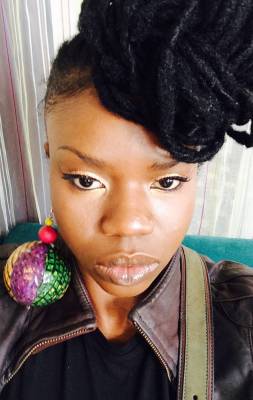 Mary Okon Ononokpono is a British based writer, artist and illustrator. Born in Calabar, Nigeria, Mary moved to the United Kingdom as a baby and has lived there ever since. Mary has a passion for African arts, culture and history. With a background in design and journalism, Mary has been featured in numerous Pan-African publications. Following a brief return to Nigeria in December 2012, Mary turned her hand towards creative writing.
Mary Okon Ononokpono is a British based writer, artist and illustrator. Born in Calabar, Nigeria, Mary moved to the United Kingdom as a baby and has lived there ever since. Mary has a passion for African arts, culture and history. With a background in design and journalism, Mary has been featured in numerous Pan-African publications. Following a brief return to Nigeria in December 2012, Mary turned her hand towards creative writing.
Mary says, “I'm delighted to discover that I've been long-listed for this prestigious award! This is the first story Children's story I've written so it comes as a complete shock. My daughter, who happens to be my inspiration for the story is even more delighted than me.”
Talulah the Time Traveller - Talulah Taiwo is an ordinary girl with an extraordinary talent. Talulah is an inventor that happens to be obsessed with coding. She lives with her Mum (an independent architect) and with her trusty sidekick, Karma, an intelligent jet black cat. Talulah's latest app has been entered into the 'Minds of Tomorrow' science fair, but Mum is unable to take her due to a looming deadline and poor organisation skills. Disappointed at the thought of Mum letting her down again, Talulah decides to take matters into her own hands. She creates a shock inducing time management app to help Mum keep to time. However in her haste, she accidentally enters part of the code incorrectly. Upon testing the app, Talulah finds herself suddenly transported to an ancient Egyptian city. The trouble is, the unexpected power surge has drained the battery on her tablet. Aided by Karma, a gang of cats, and a curious Egyptian boy, Talulah sets about finding a solution to her problem. Will they get the tablet to work so that she can get back home in time for the fair?
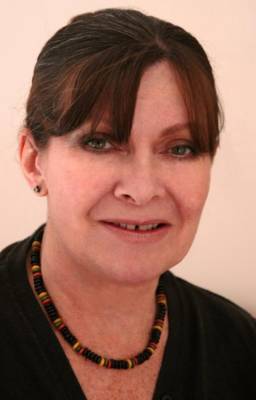 Jayne Bauling's Young Adult novels have won the Macmillan Writer’s Prize for Africa, the Maskew Miller Longman Literature Award and the Sanlam Gold Prize for Youth Literature. The most recent, Dreaming of Light, was chosen for the 2014 IBBY Honour List. Her short stories for adults and youth have been published in a number of anthologies. She lives in White River in Mpumalanga, South Africa.
Jayne Bauling's Young Adult novels have won the Macmillan Writer’s Prize for Africa, the Maskew Miller Longman Literature Award and the Sanlam Gold Prize for Youth Literature. The most recent, Dreaming of Light, was chosen for the 2014 IBBY Honour List. Her short stories for adults and youth have been published in a number of anthologies. She lives in White River in Mpumalanga, South Africa.
“As a long-time admirer of Golden Baobab’s commitment to African stories, I’m honoured and thrilled that my story should have made the 2014 long-list for this prestigious award. Congratulations to everyone else on the list and good luck to us all.” Jayne remarked after receiving news she had been longlisted for the Golden Boabab Prize for Early Chapter Book.
The Saturday Dress - Mavi isn’t too happy about being sent to live with his grandparents in Kabokweni, and discovering that one of his teachers, Ms Mabuza, is their next door neighbour adds to his woes. Things aren’t exactly easy at his new school either, where his only friend seems to be Gcina, but he soon finds himself distracted by a number of mysteries. Matchboxes and money are being hidden in some strange places in his area, and then there’s the child’s dress that hangs on Ms Mabuza’s washing line every Saturday – when there is no child in the house. In trying to solve the matchbox mystery, Mavi makes a mistake which leads to him being misjudged, and he does something terrible in response. How will he ever put things right?
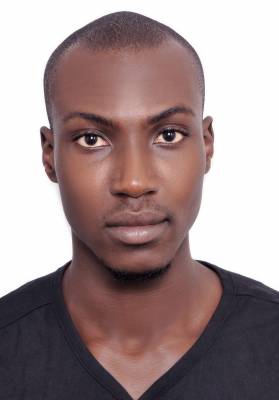 Ricky Dankwa Ansong was born in June, 1990 in the bustling city of Accra, Ghana. Ricky developed a love for reading at an early age but he didn’t think he was good enough to write something worth reading. It was only in his second year of high school in Saint Augustine’s College (Cape Coast) that he ventured to write his first novel “Basic Interest” which he never published. In his third year at the Kwame Nkrumah University of Science and Technology, while studying Business Administration, Ricky decided to share his talent with the world.
Ricky Dankwa Ansong was born in June, 1990 in the bustling city of Accra, Ghana. Ricky developed a love for reading at an early age but he didn’t think he was good enough to write something worth reading. It was only in his second year of high school in Saint Augustine’s College (Cape Coast) that he ventured to write his first novel “Basic Interest” which he never published. In his third year at the Kwame Nkrumah University of Science and Technology, while studying Business Administration, Ricky decided to share his talent with the world.
“I had to take a walk to calm my racing heart. While I did that, I kept repeating the words: God, I thank you.” That was what Ricky did when he received the news he had been longlisted for the Golden Baobab Prizes.
Kweku Ananse: The Tale of the Wolf and the Moon - Sakraman, the wolf, is poor and has no friends. He has nothing to harvest from his farm and, thus, suffers the wrath of Kweku Ananse due his inability to pay the cunning spider what he owes him. The Wolf’s bad luck ends when the Moon hears his plea and decides to offer him help. Soon, the Wolf and the Moon become best friends and the wolf becomes very rich. The cunning spider, Kweku Ananse, follows the Wolf around the Kingdom to discover the source of Wolf’s good fortune. When Ananse discovers the truth behind the Wolf’s wealth, his greedy heart hatches a plan to take it all for himself.
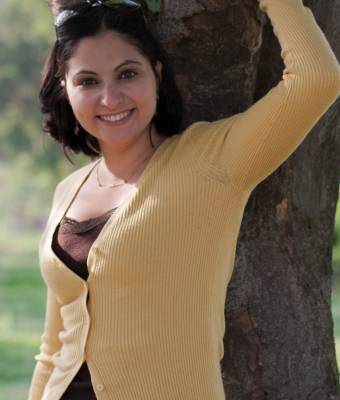 Dina Mousa was born in 1984 and grew up in Cairo, Egypt. She graduated from business school majoring in business administration. She started traveling at the age of 24 and moved to South Korea in 2010. She's a wife, animal lover, author, and a traveler.
Dina Mousa was born in 1984 and grew up in Cairo, Egypt. She graduated from business school majoring in business administration. She started traveling at the age of 24 and moved to South Korea in 2010. She's a wife, animal lover, author, and a traveler.
Dina narrated, "I was checking my inbox as I do every morning. I saw the email from Golden Baobab, I read it and couldn't believe that I made it to the long list. As I stared at the email my heartbeat got faster and my eyes filled with tears."
The Sunbird and Fatuma - One day a little girl who lives with her loving father in the woods discovers a magical forest. A friendship begins between the little girl, Fatuma, and the Sunbird. When Fatuma finds out the painful truth about her father, how will she protect her friend?
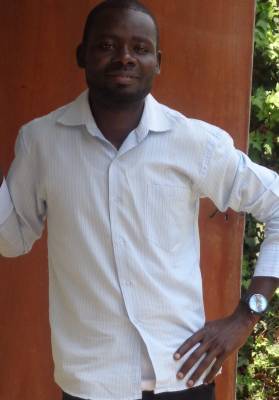 Hillary Namunyu is a publishing editor in Nairobi, Kenya. He is also a reading ambassador with Start-A-Library, an organisation that promotes installation and stocking of libraries with creative books as well as championing reading in primary schools. He occasionally contributes literary commentaries to The Saturday Nation.
Hillary Namunyu is a publishing editor in Nairobi, Kenya. He is also a reading ambassador with Start-A-Library, an organisation that promotes installation and stocking of libraries with creative books as well as championing reading in primary schools. He occasionally contributes literary commentaries to The Saturday Nation.
"Wow! Unbelievable! ...I now believe in that saying, that there is a sense of greatness in every person." Hillary exclaimed when he received the news he had been longlisted for the Golden Baobab Prize for Early Chapter Book.
Teddy Mapesa and the Missing Cash - Teddy is about 12 years old, lives in Nairobi with his parents and goes to a city council school. Like many children, he has a group of friends from different cultures. Some are mischievous, others terribly honest; Teddy is their consciousness. Amidst the challenges of growing up in the city, the desire to perform well in school and appease his parents whilst keeping the company of his friends, he finds himself in the thick of things when his classmate and best friend Muthoni is caught in a tragedy in the hustle and bustle of Nairobi life
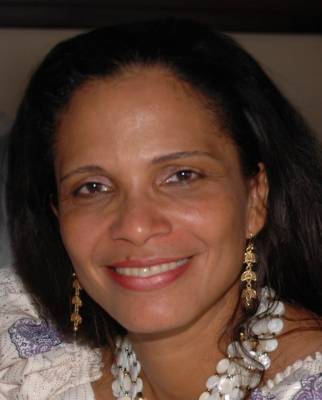 Mamle Wolo is a writer of Ghanaian and German parentage, was born in Ghana and educated in both Ghana and the United Kingdom, graduating from the University of Cambridge. She is currently resident in Ghana and works as a consultant in social development issues. In 2011, she won the Burt Award for African Literature in Ghana with her young adult novel ‘The Kaya-Girl.’ She is a co-director of the Writers Project of Ghana and a mother of two.
Mamle Wolo is a writer of Ghanaian and German parentage, was born in Ghana and educated in both Ghana and the United Kingdom, graduating from the University of Cambridge. She is currently resident in Ghana and works as a consultant in social development issues. In 2011, she won the Burt Award for African Literature in Ghana with her young adult novel ‘The Kaya-Girl.’ She is a co-director of the Writers Project of Ghana and a mother of two.
"Great news!" Mamle exclaimed when she received the news of her story being longlisted for the Golden Baobab Prize for Early Chapter Book.
Flying through Water is the story of a boy who escapes from bonded labour in the fishing industry into a great adventure on the Volta Lake. Inspired by his grandfather’s stories, he has learned that his family’s history is bound up with the creation of the lake and the dam. His own adventure reunites and brings back to life the different strands of this history, including the legend of the mysterious creature of the lake, ‘Maame Water.’ This is a story of adventure and of triumph over adversity that is firmly grounded in both historical and present-day realities of Ghana.
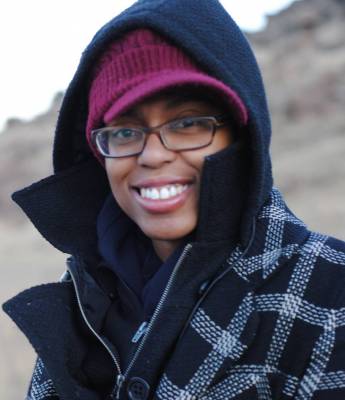 Bontle Senne is a writer, blogger, speaker and literary activist on the board of two education NGOs: Puku Children's Literature Foundation and READ Educational Trust. She is a minority shareholder of publishing house Modjaji Books. In addition to writing for children, Bontle regularly speaks children's literature at international literary festivals and conferences .She wrote her first story at 6 years old: it was about a brother and a sister rabbit who were naughty and wanted to stay up late.
Bontle Senne is a writer, blogger, speaker and literary activist on the board of two education NGOs: Puku Children's Literature Foundation and READ Educational Trust. She is a minority shareholder of publishing house Modjaji Books. In addition to writing for children, Bontle regularly speaks children's literature at international literary festivals and conferences .She wrote her first story at 6 years old: it was about a brother and a sister rabbit who were naughty and wanted to stay up late.
"I am incredibly honored to be on the Golden Baobab longlist. It is certainly the most exciting moment of my life as a writer." Bontle says.
The Monster at Midnight - Phila is stuck in her grandmother's small village for the school holiday. Between bossy big sister Thando and irritating little brother Musa, she's not having a very good holiday. On top of that, there are strange things going on in the village after dark. Things for Phila only get worse when she discovers that there's a monster after her - and he's coming at midnight.
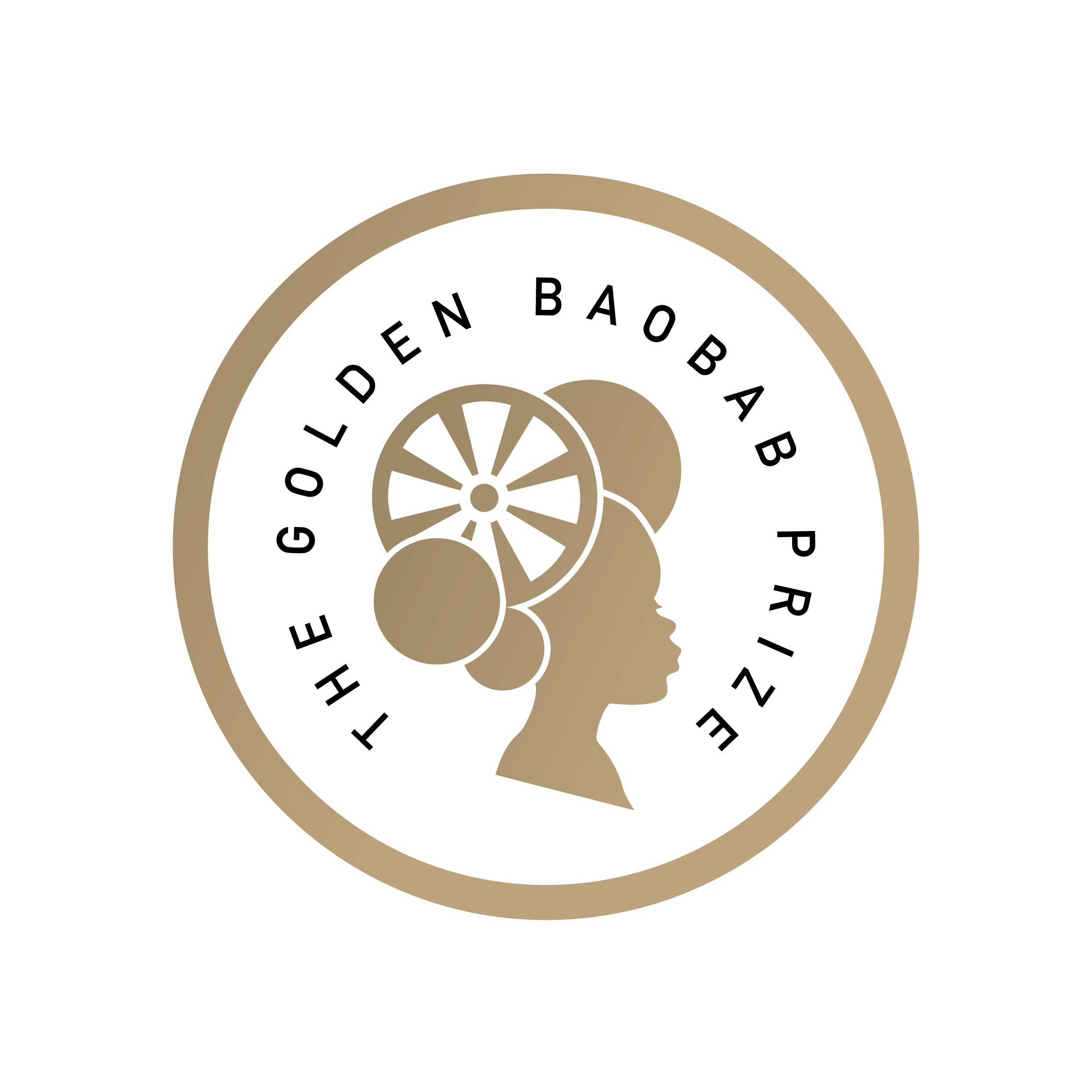




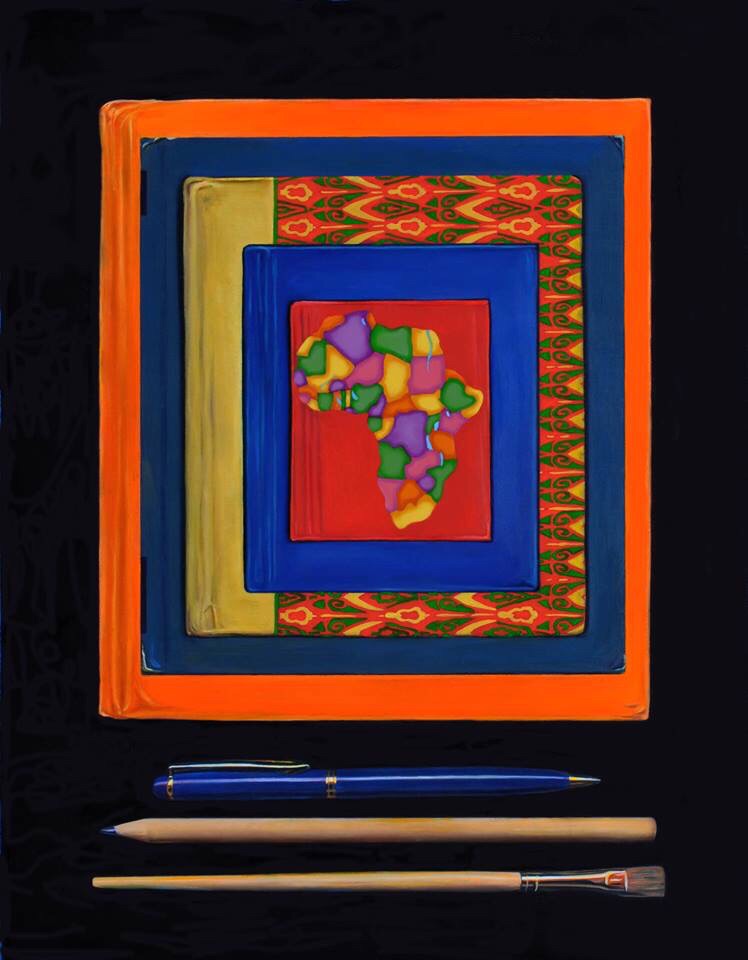
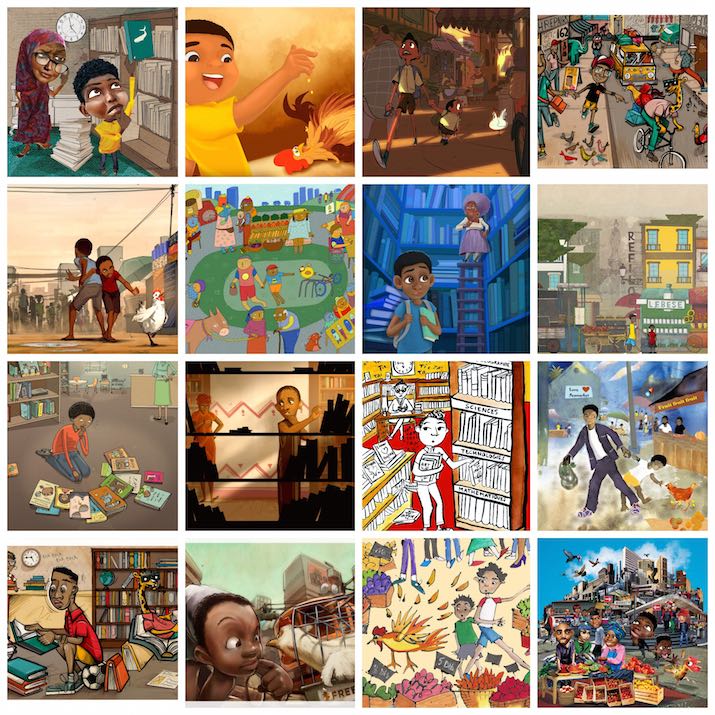
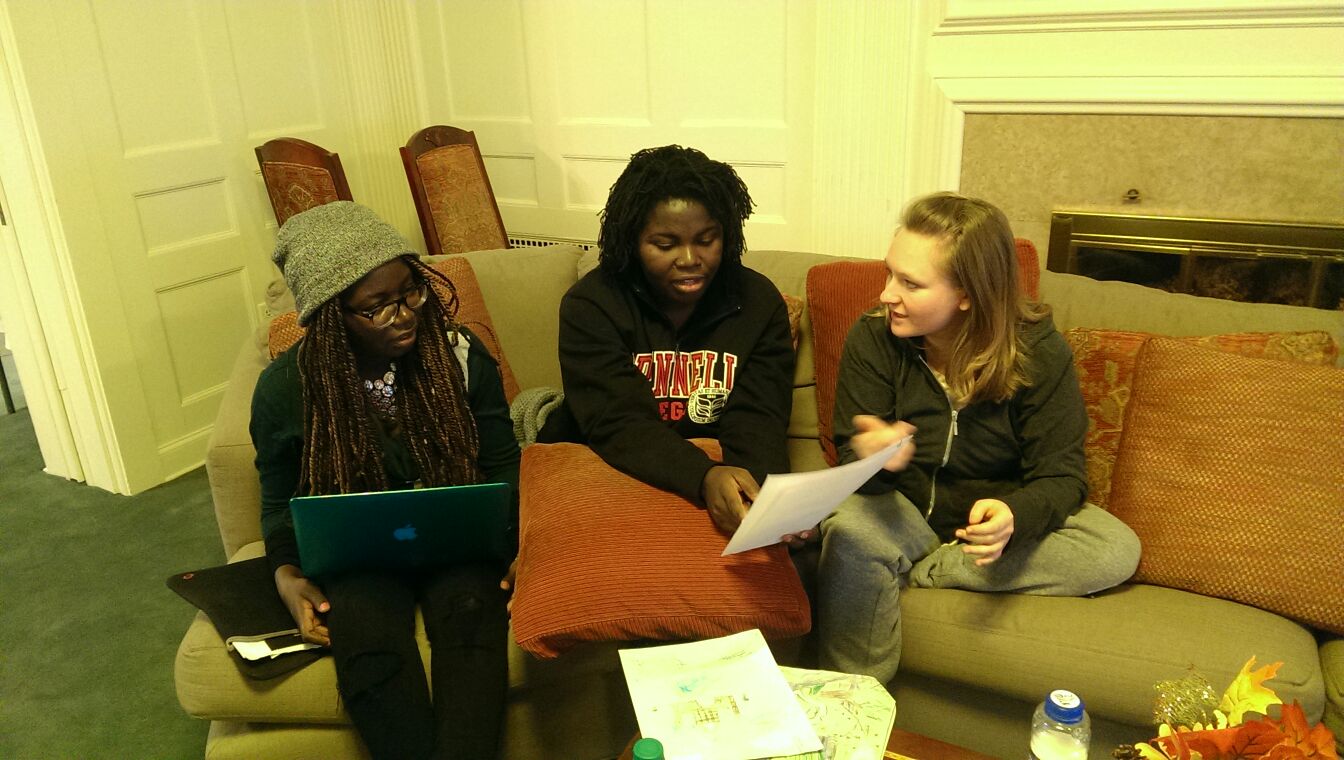
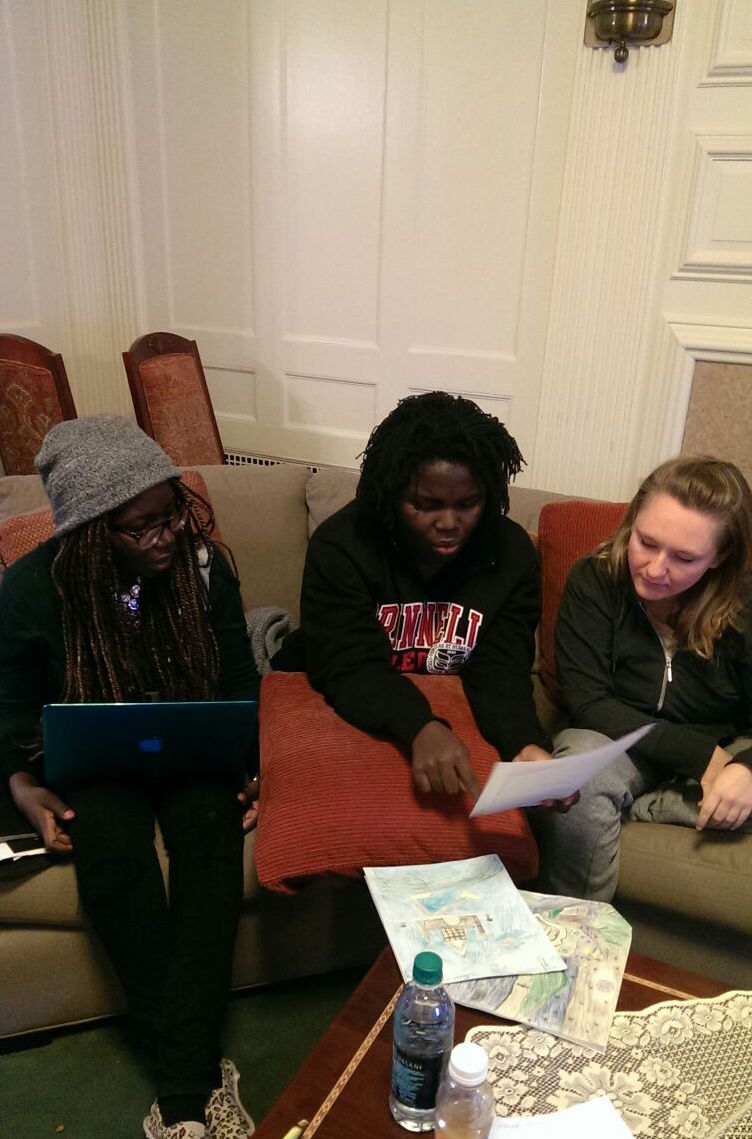
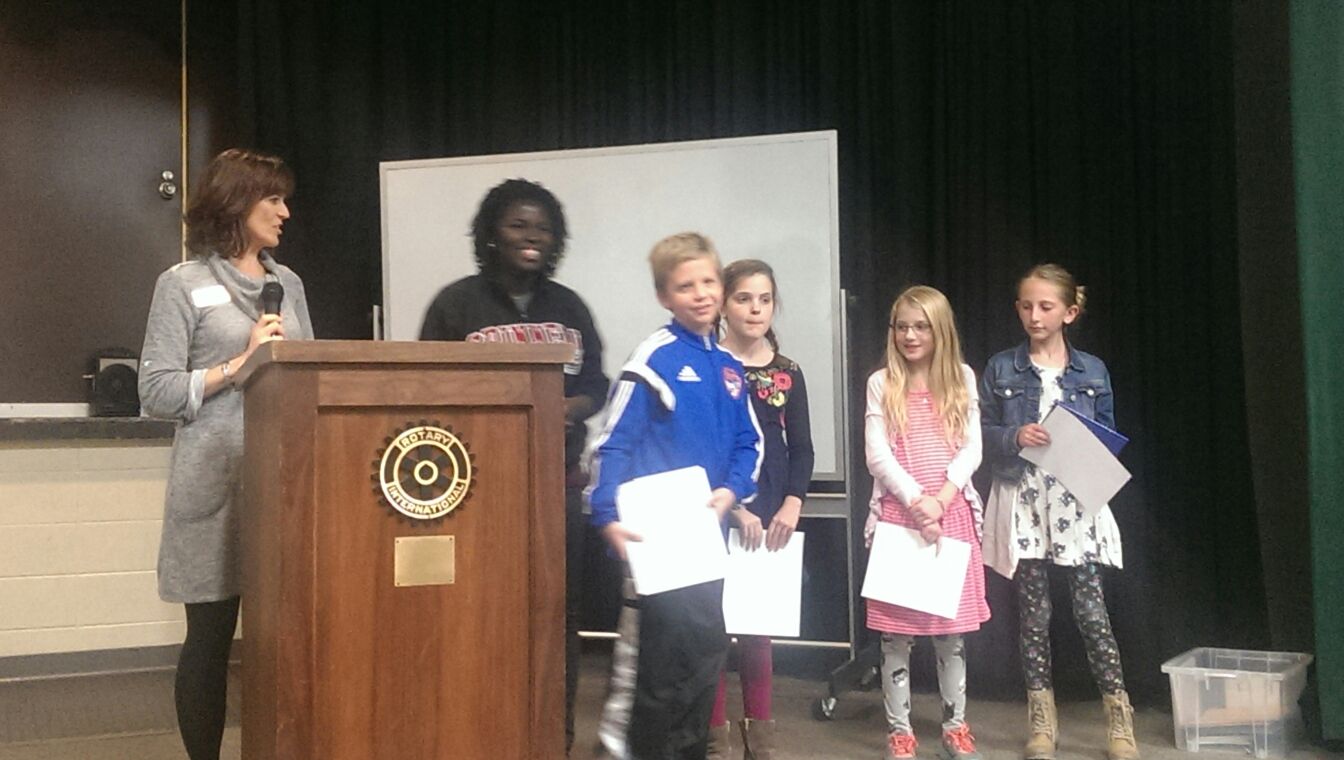
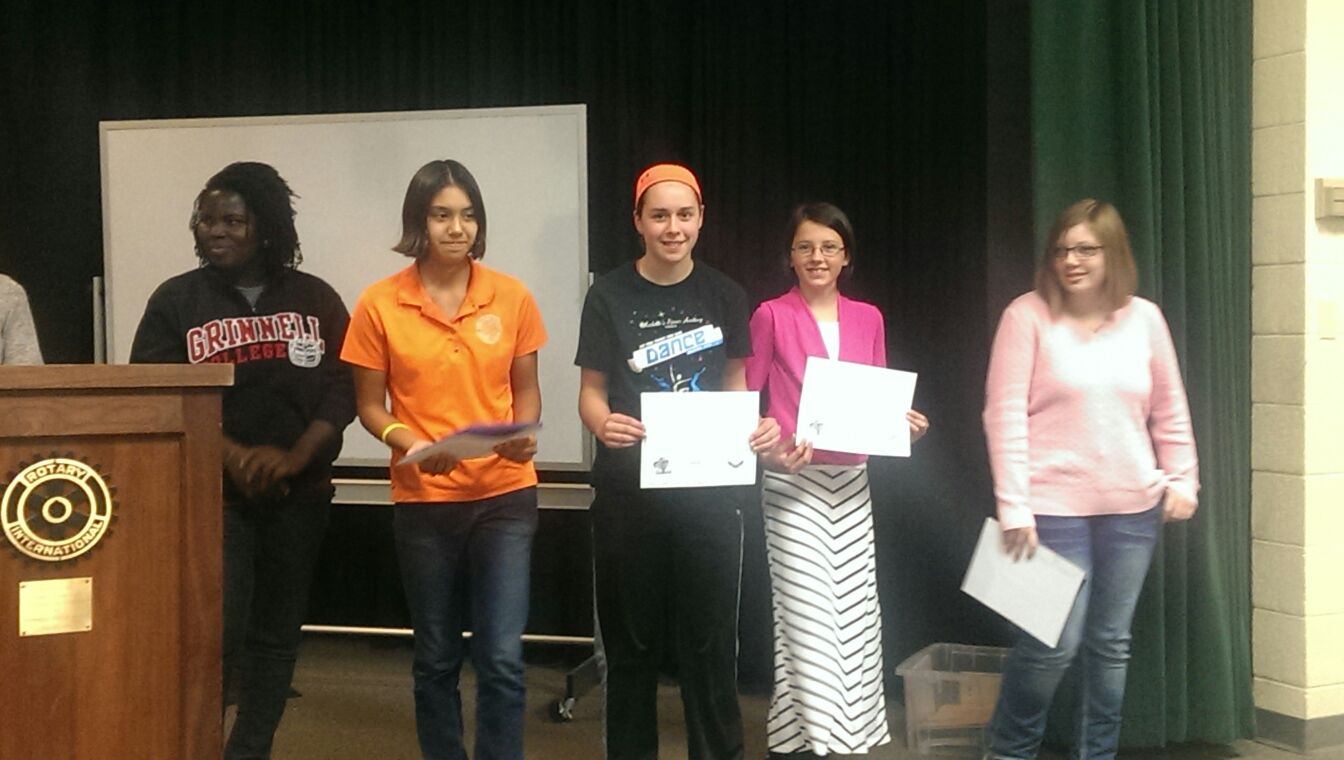
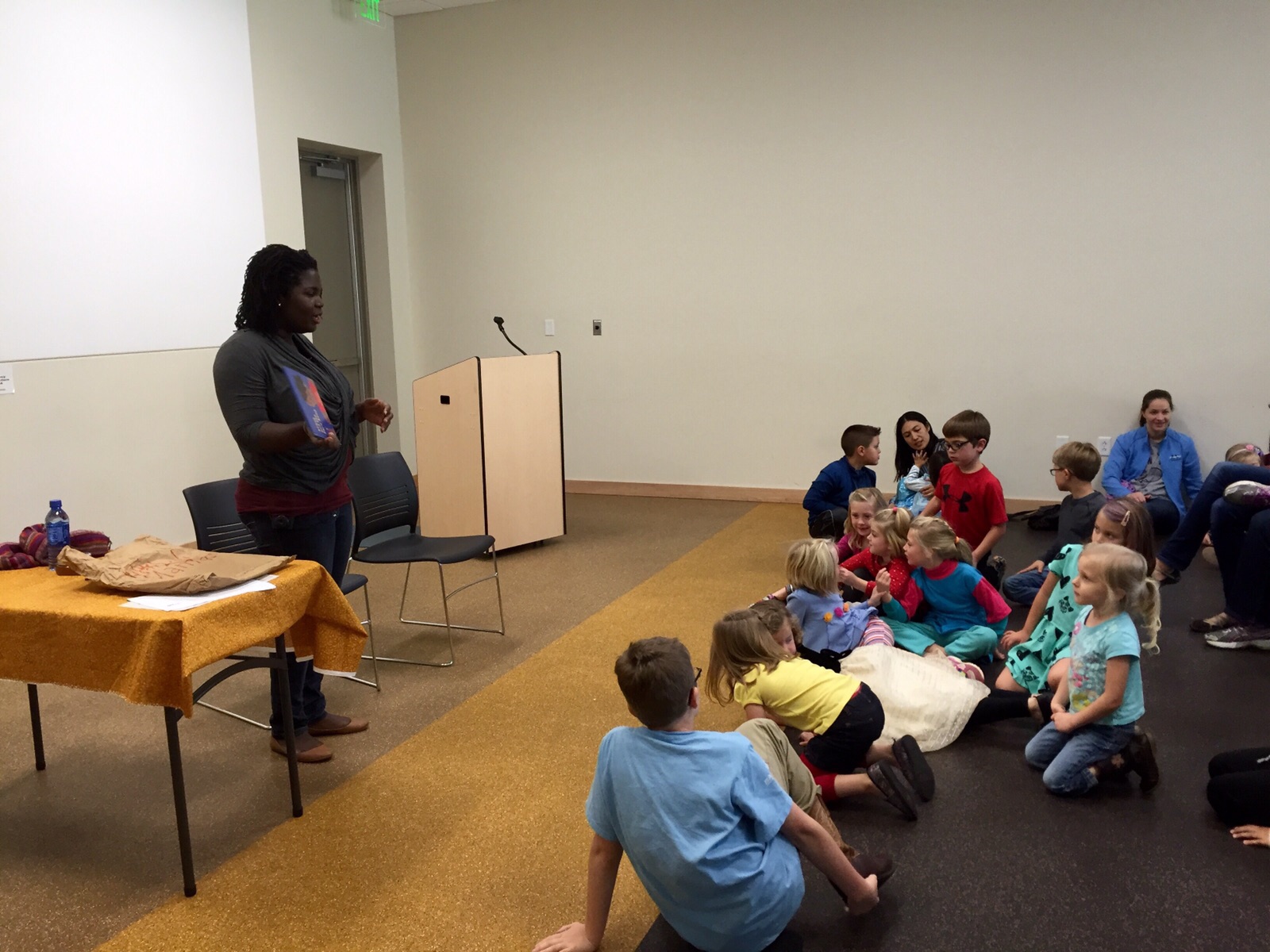
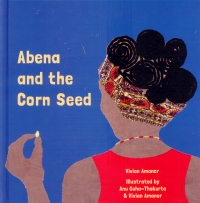
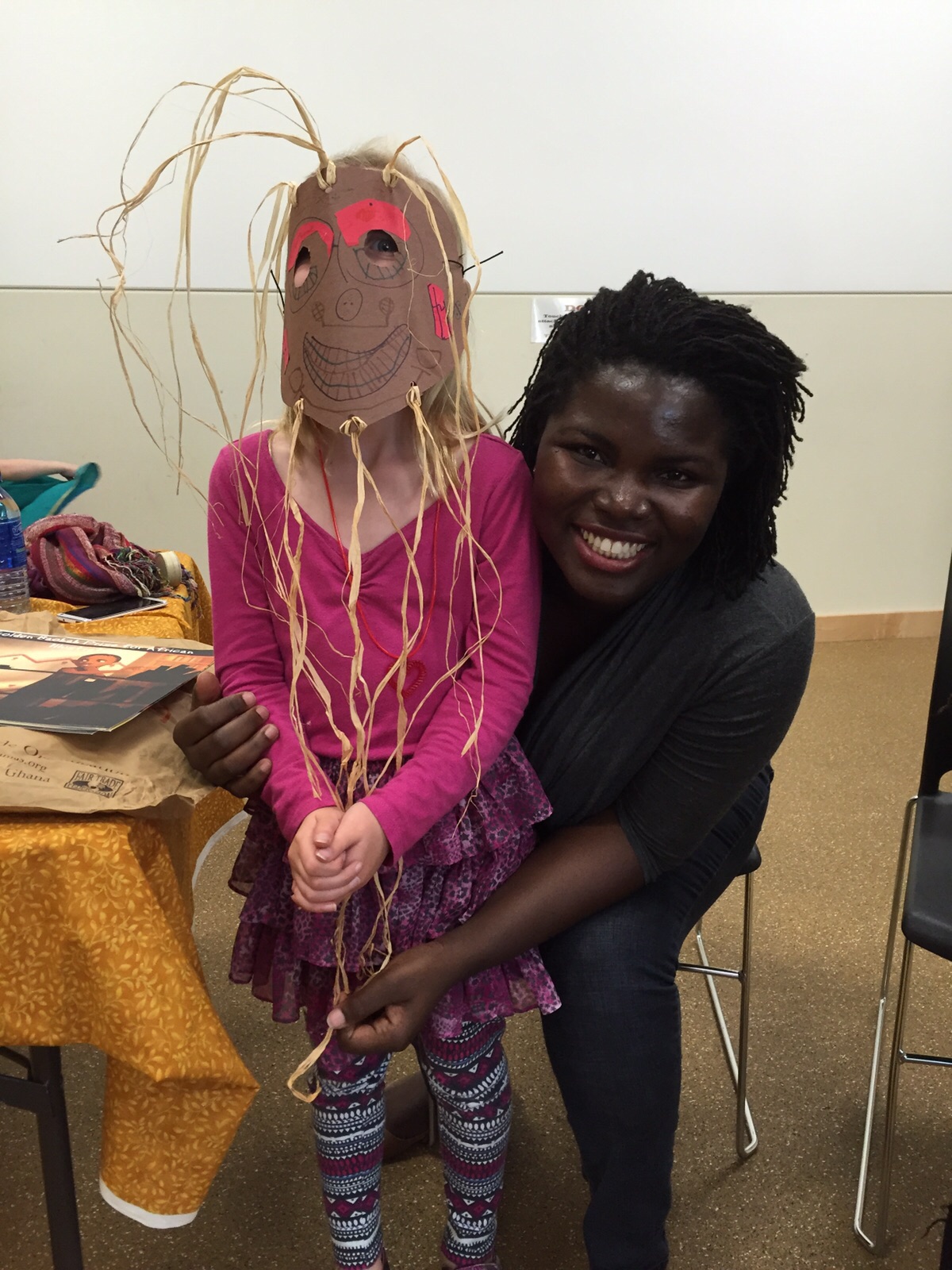
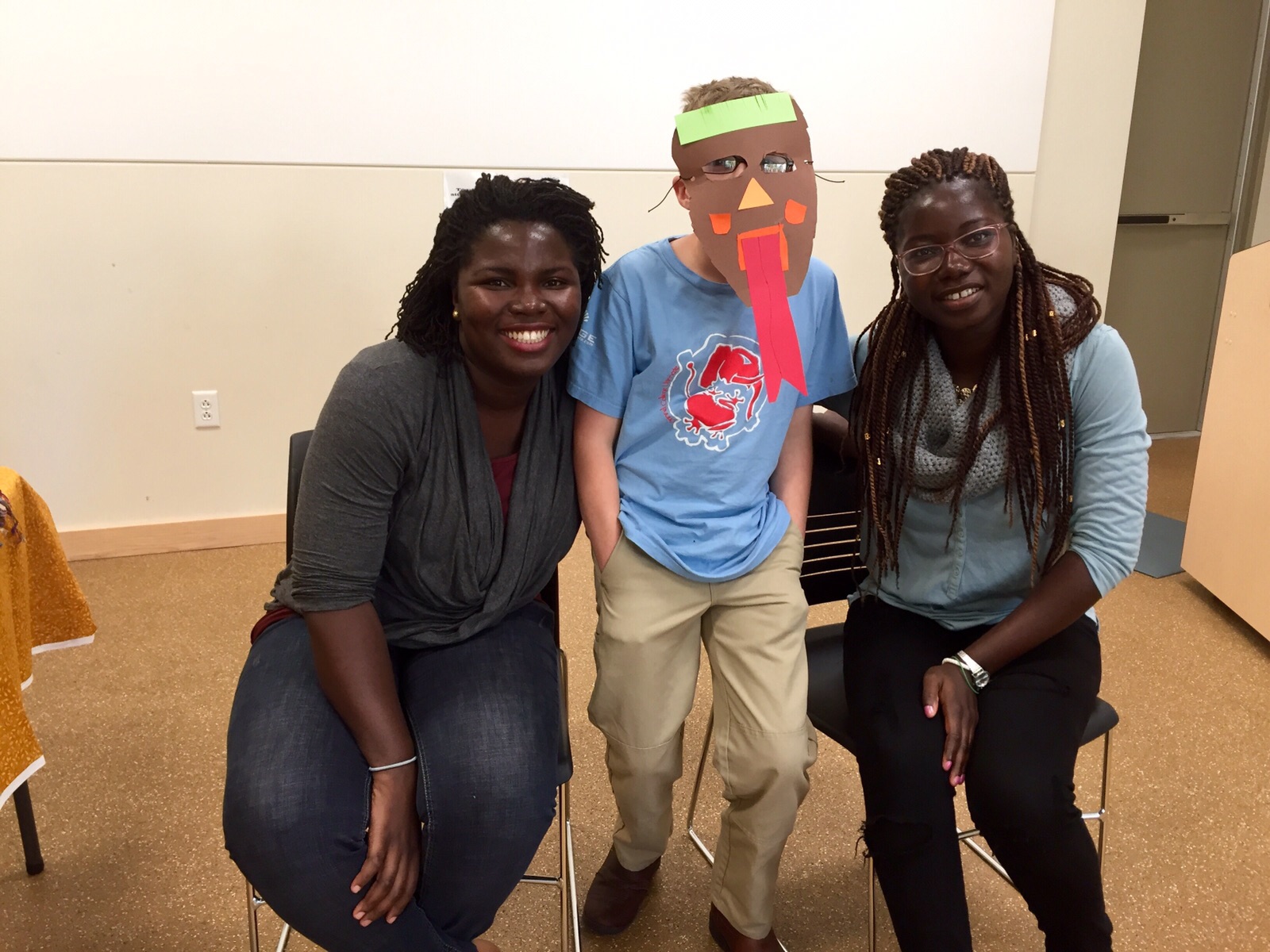
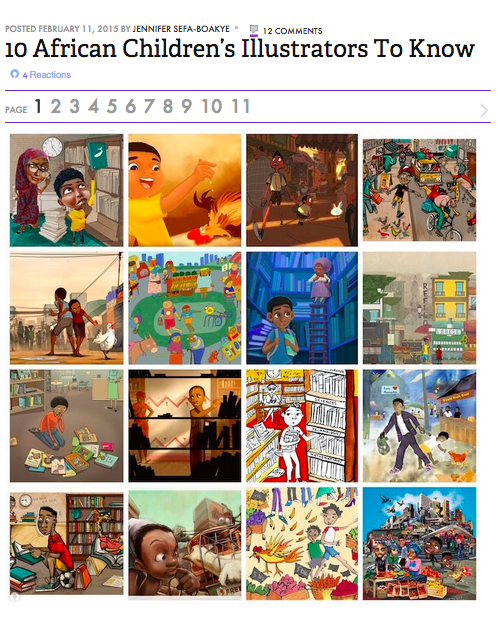
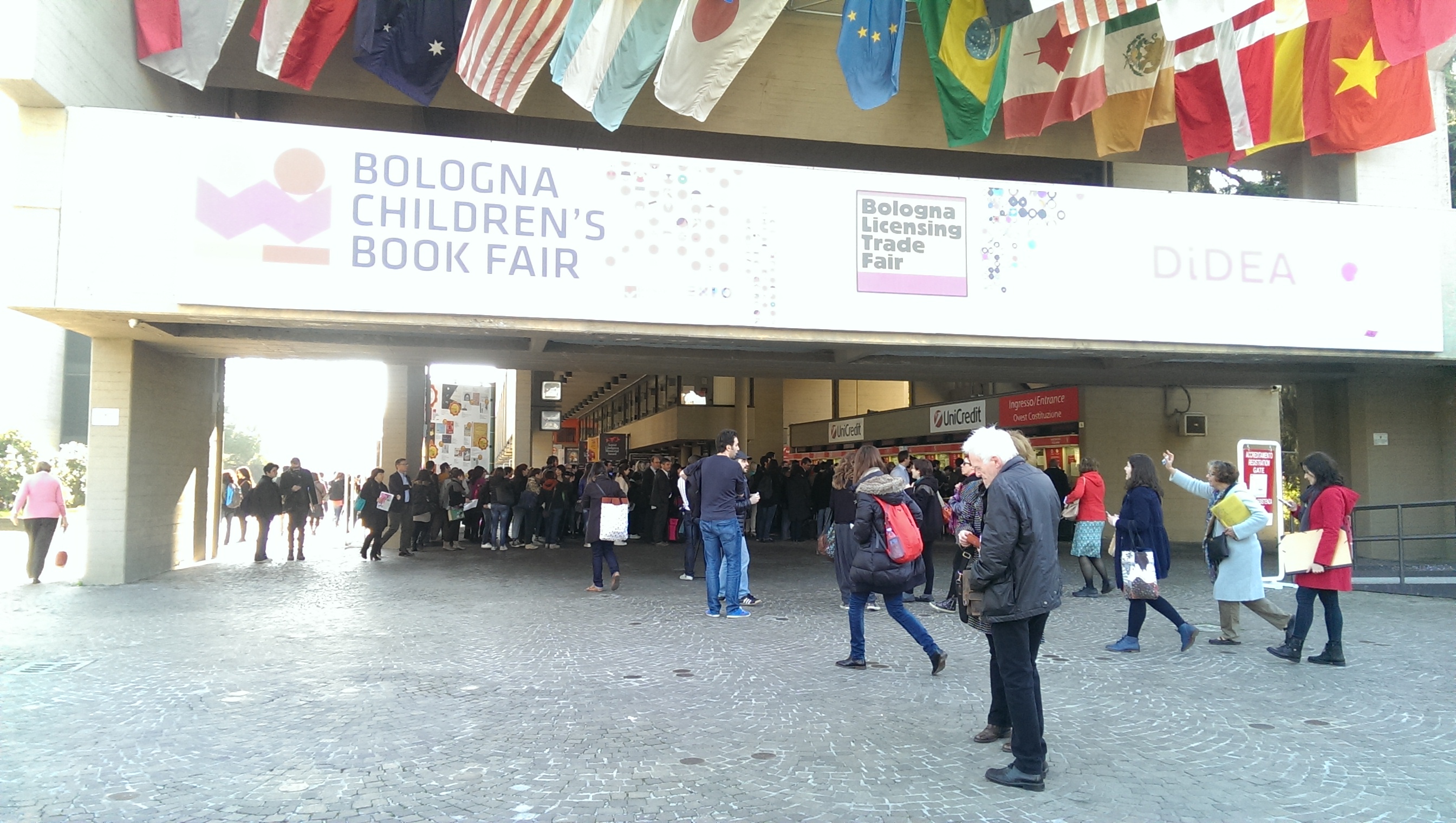
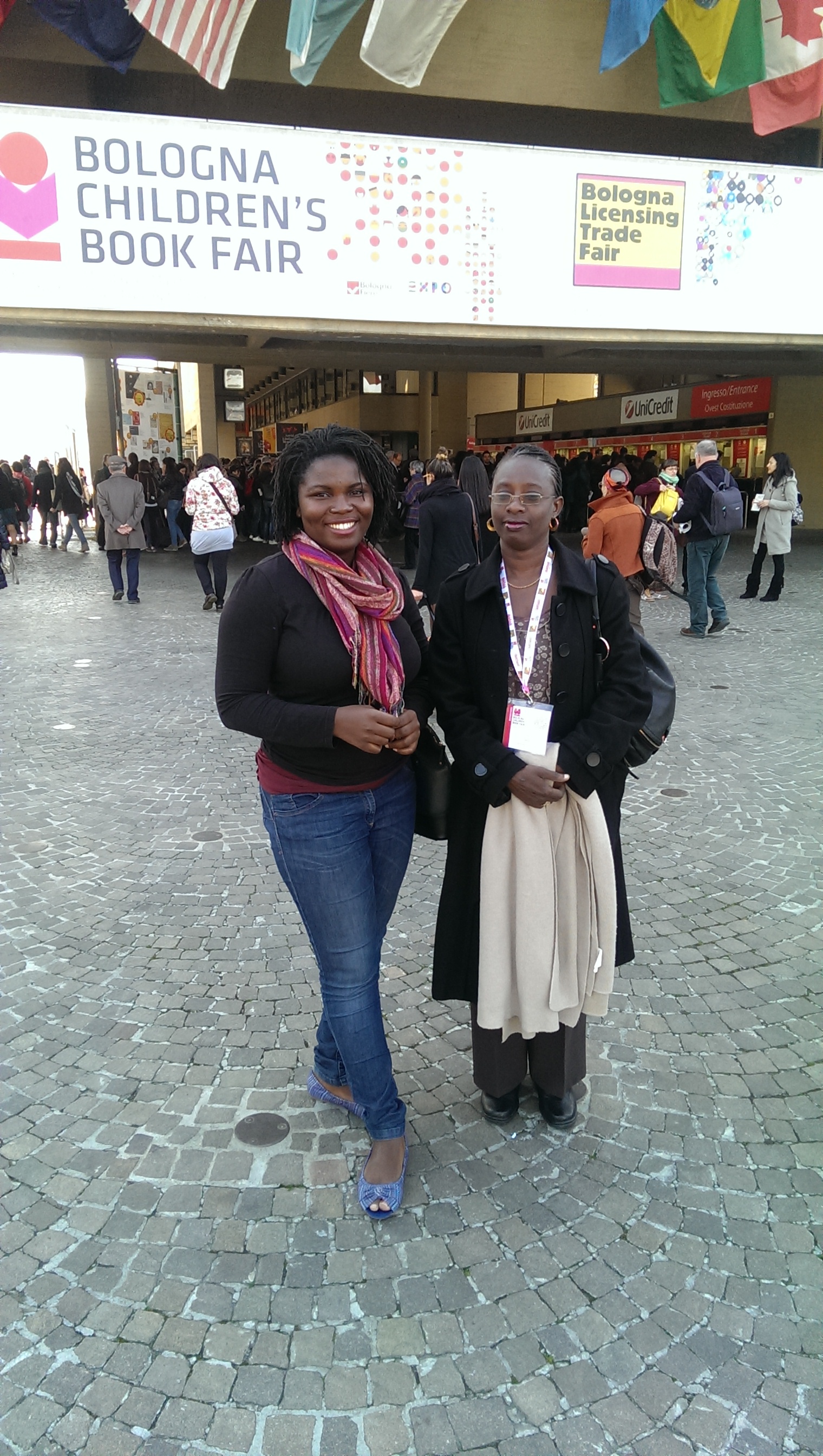
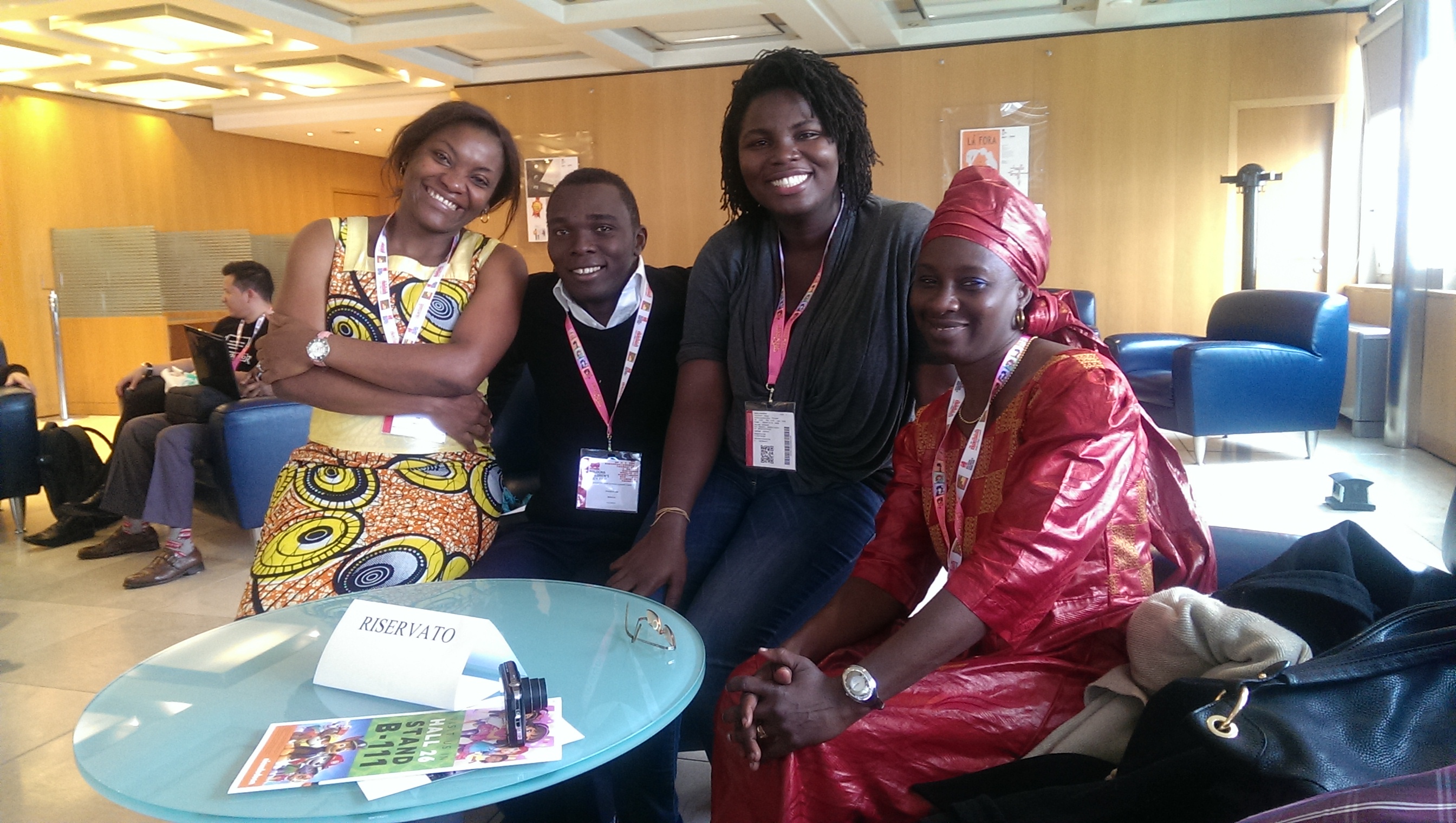
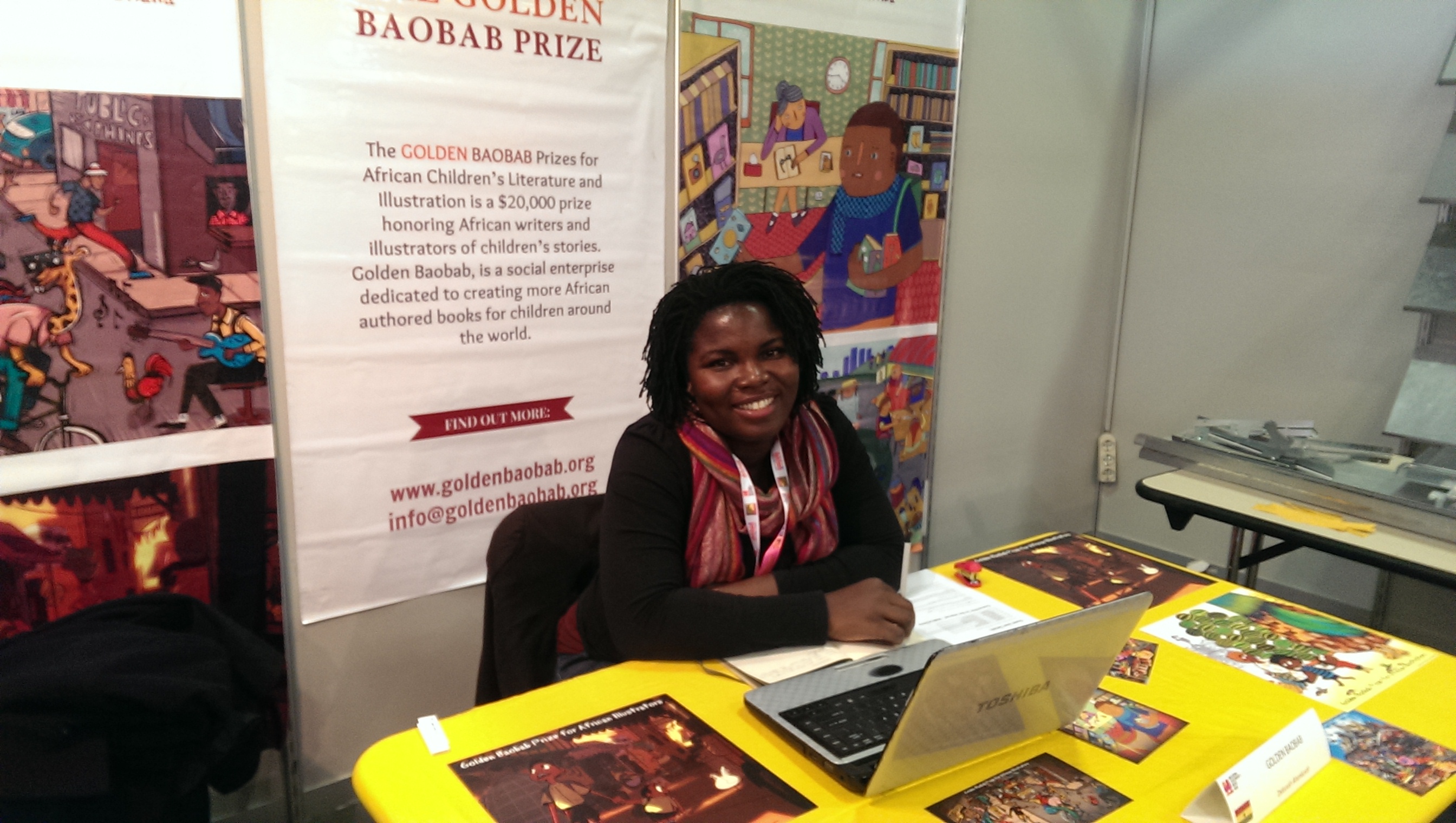
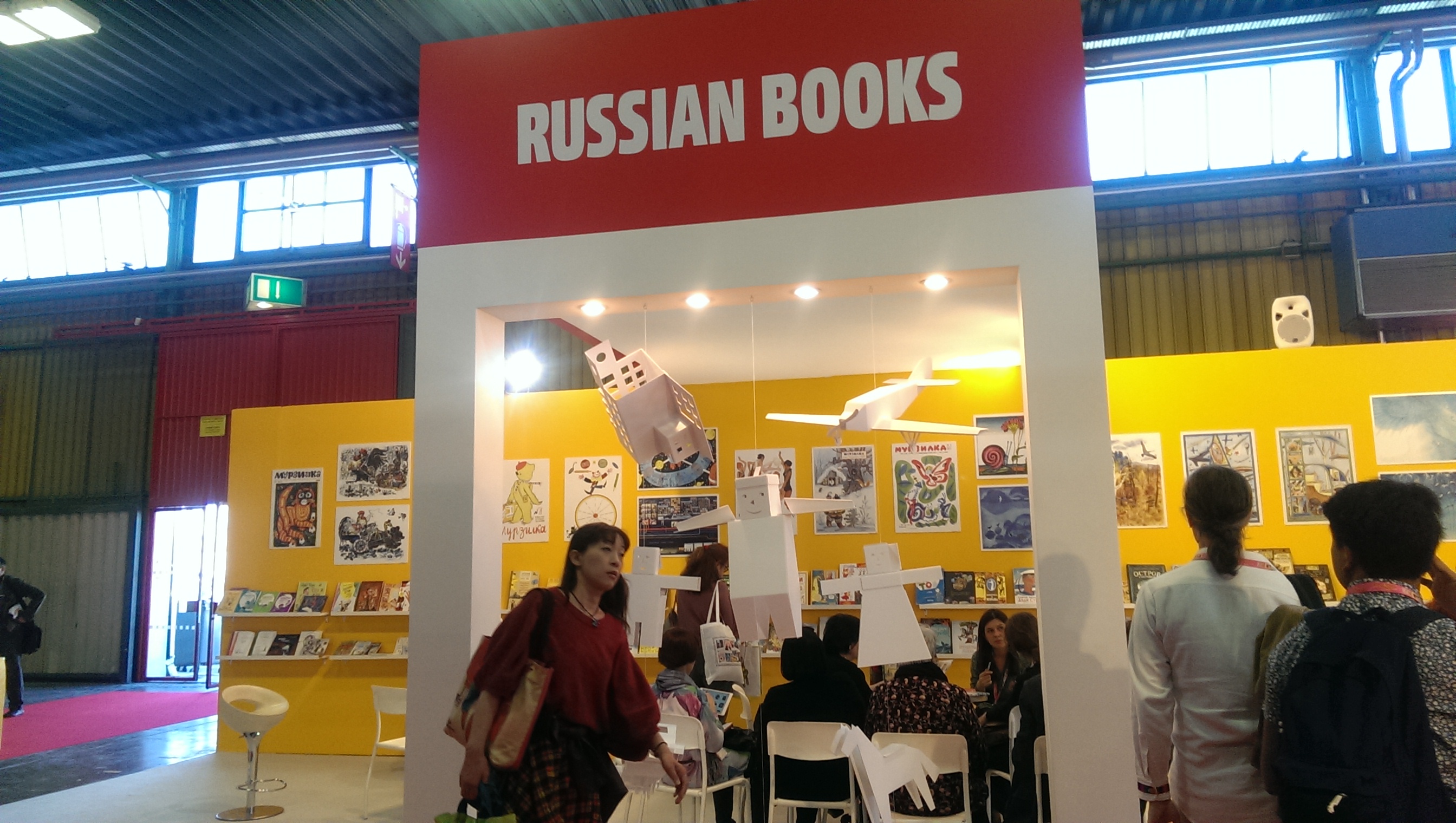
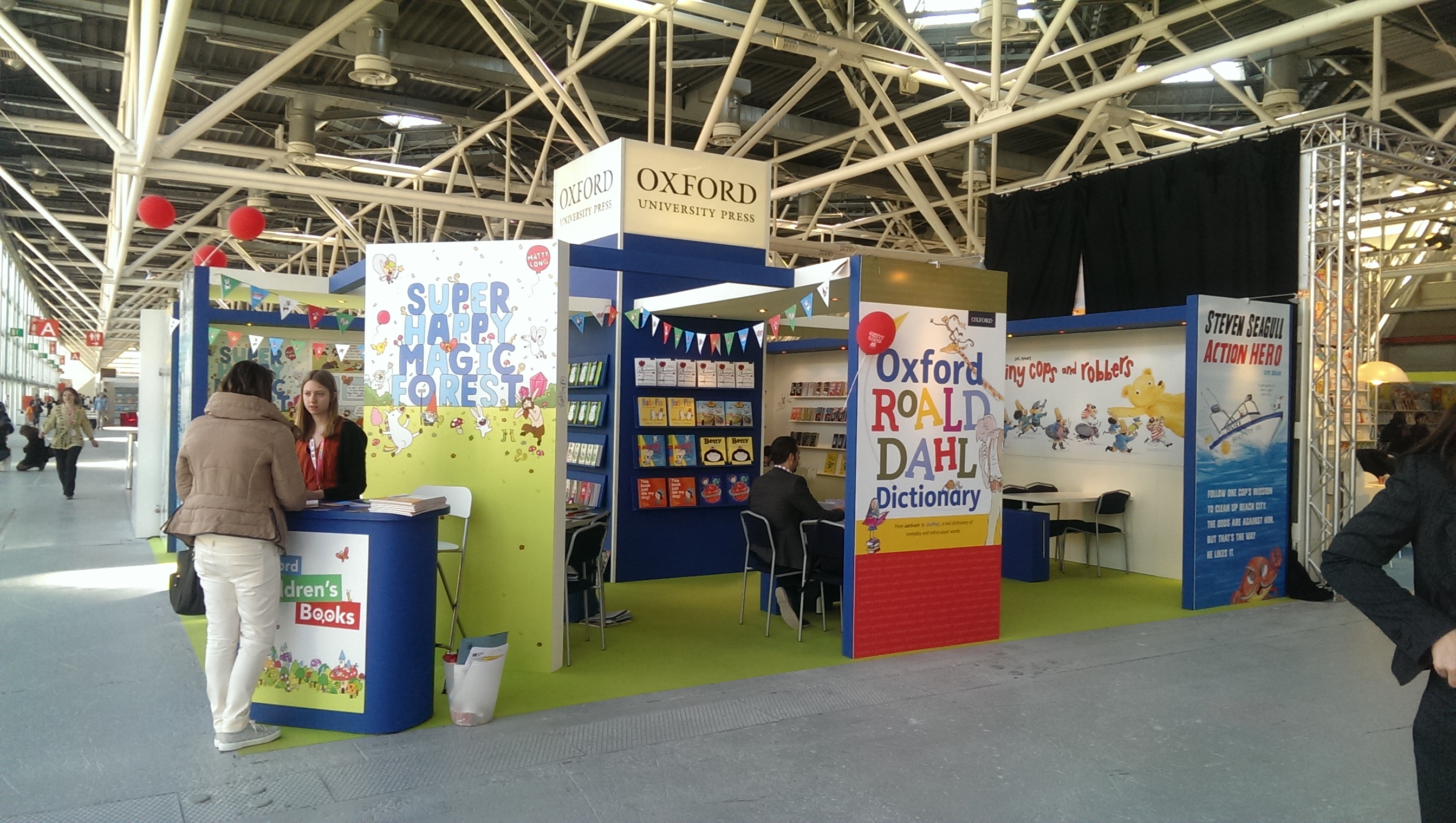
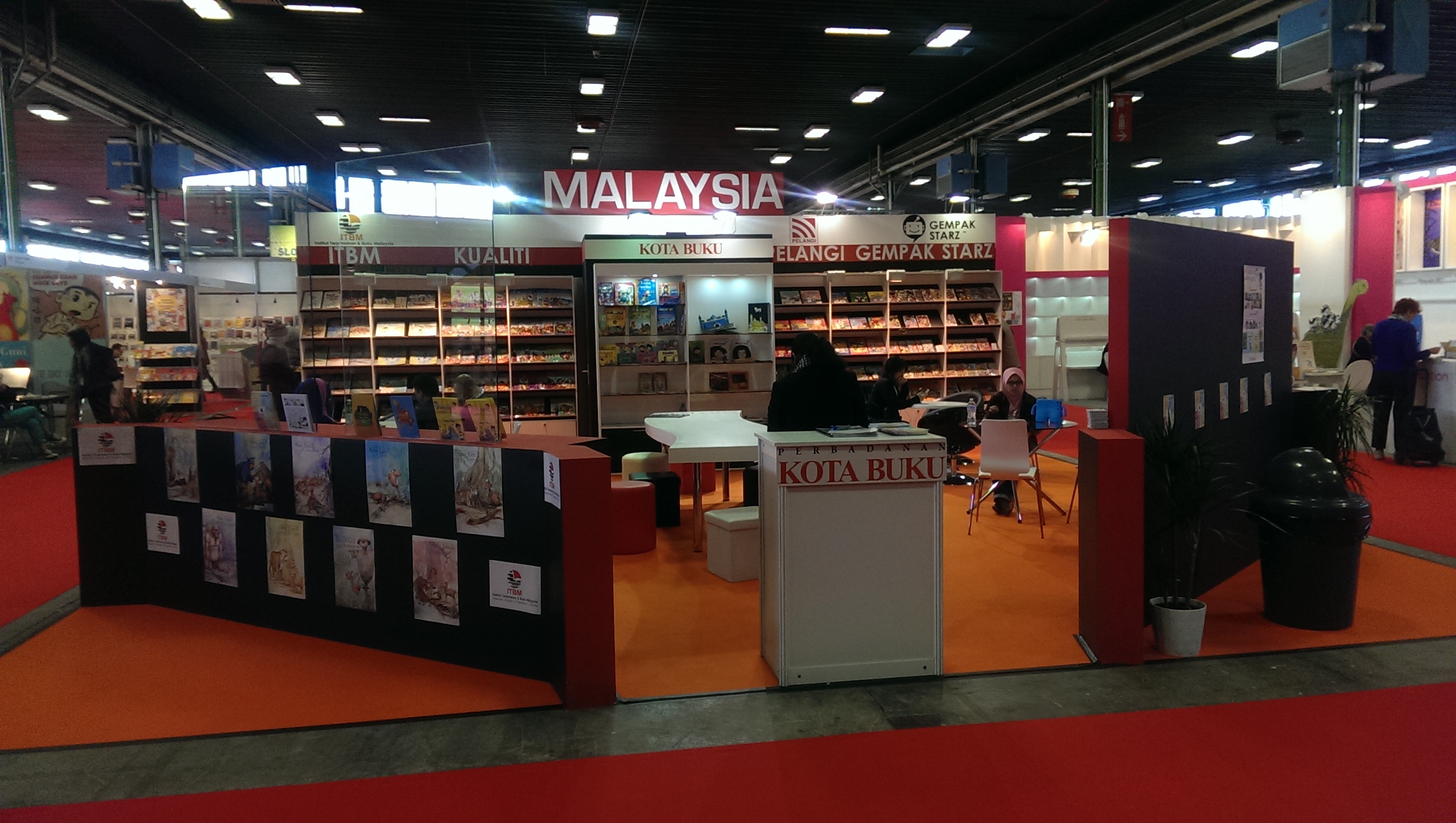
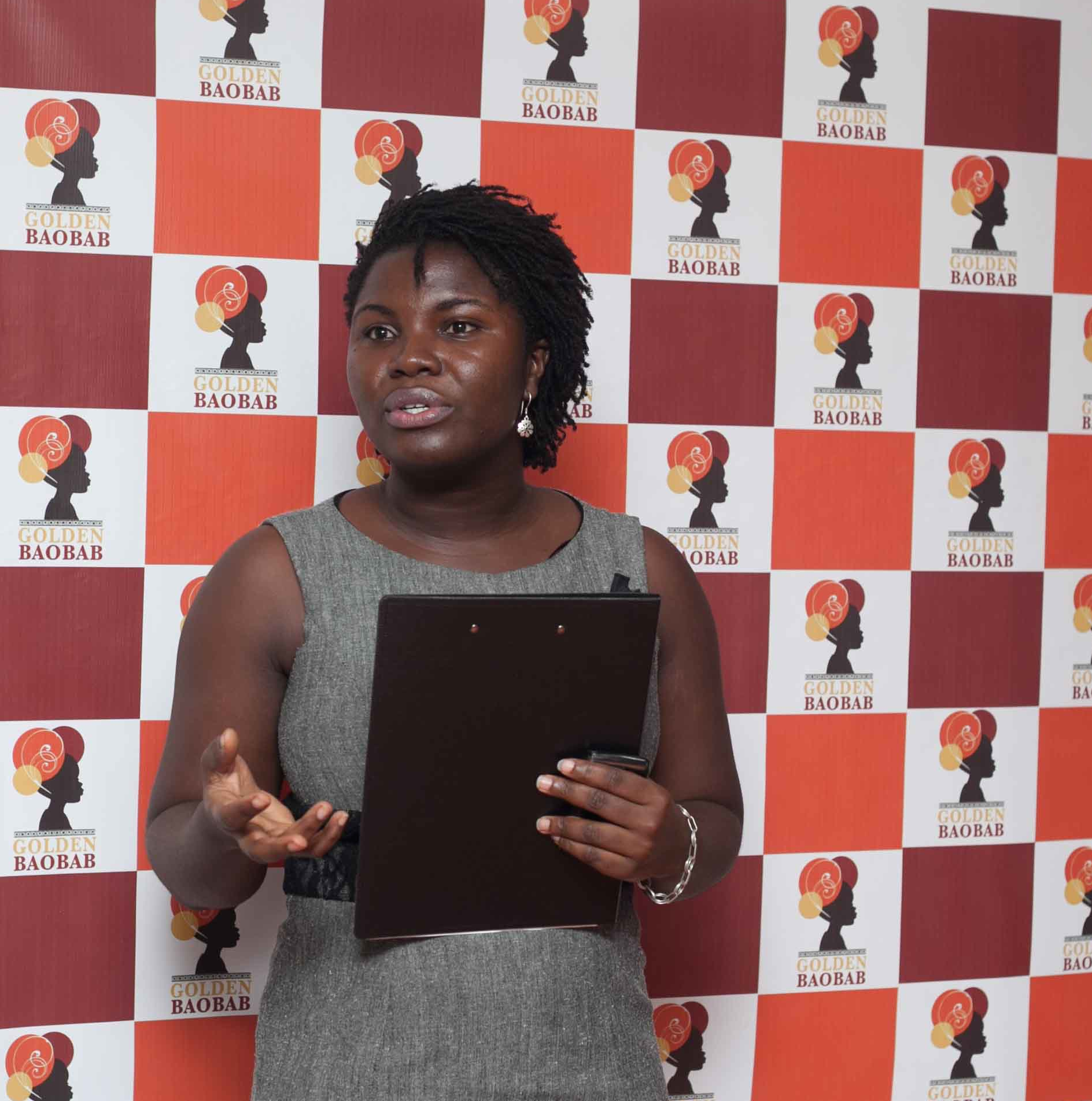
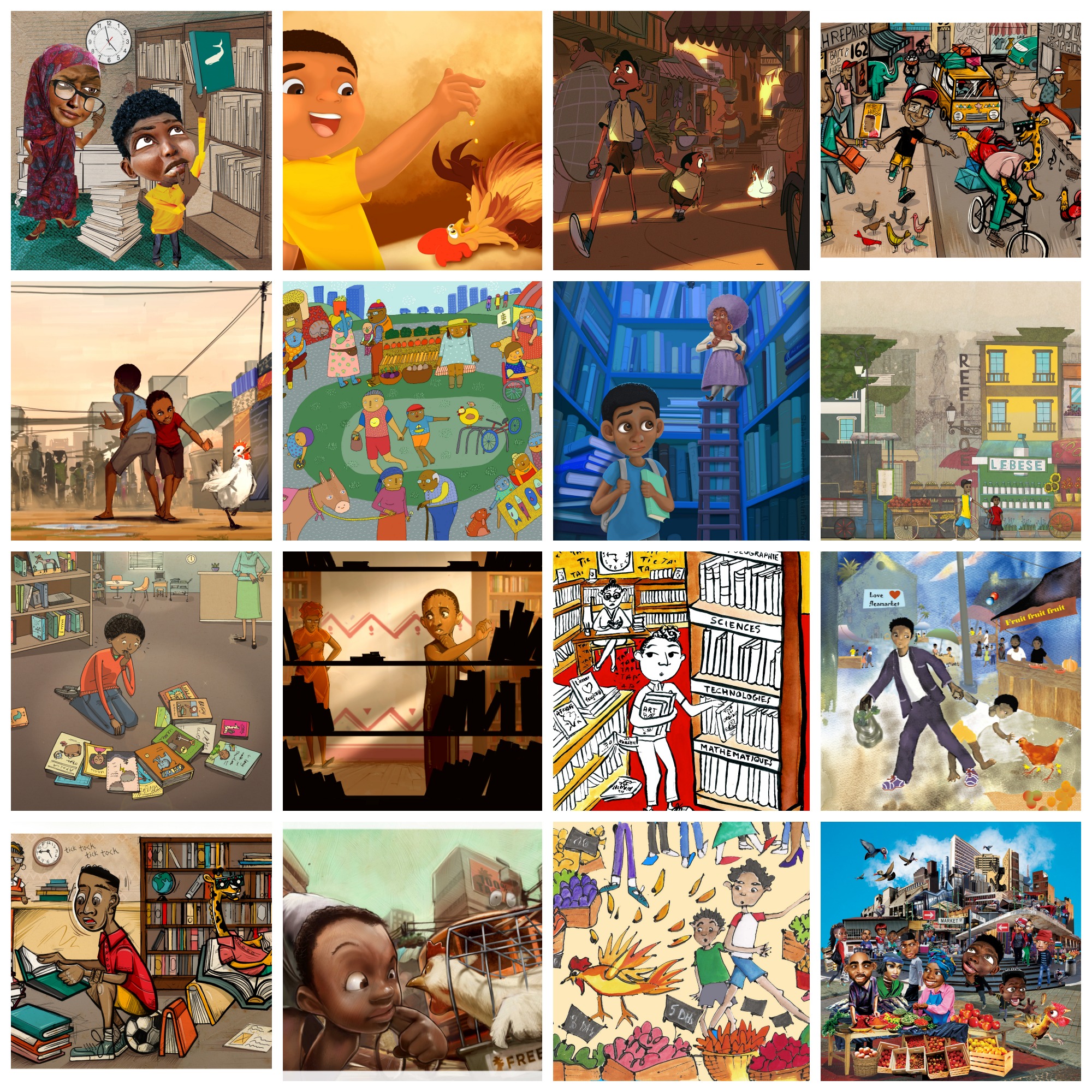

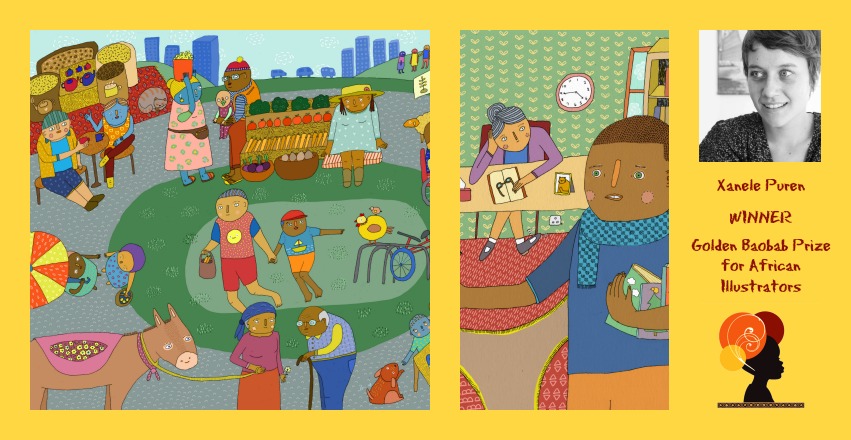

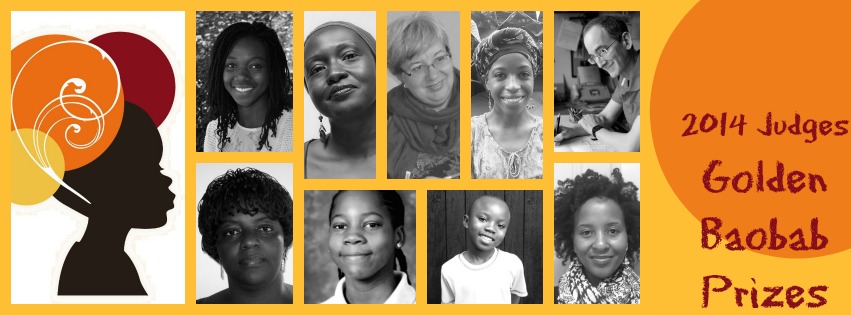
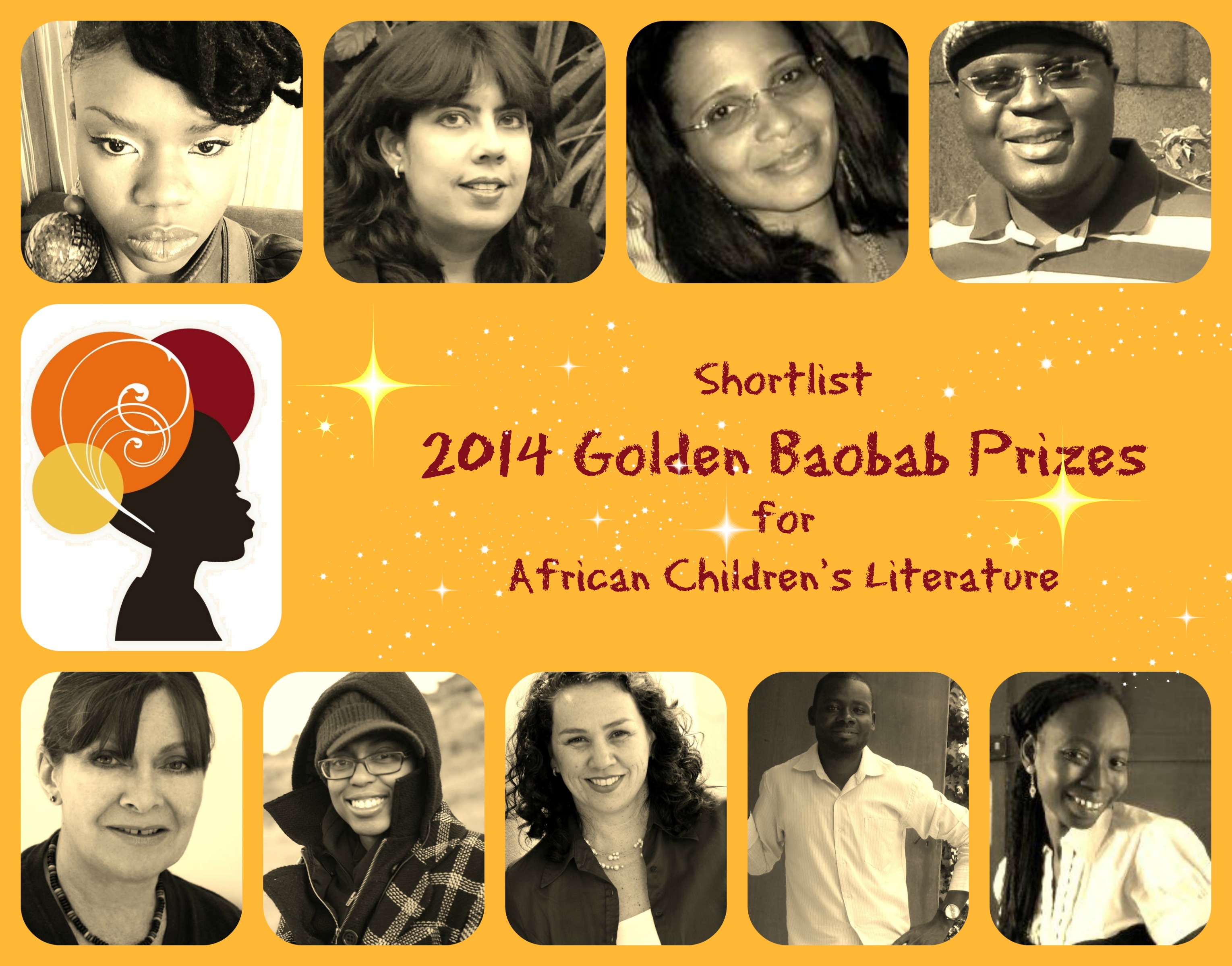
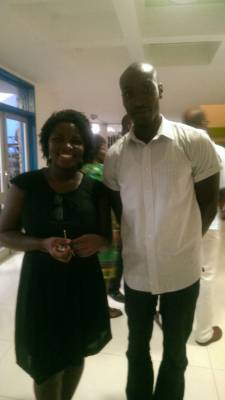
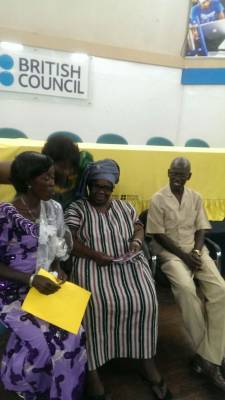
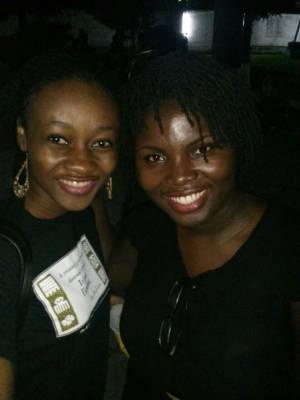
 Mary Okon Ononokpono is a British based writer, artist and illustrator. Born in Calabar, Nigeria, Mary moved to the United Kingdom as a baby and has lived there ever since. Mary has a passion for African arts, culture and history. With a background in design and journalism, Mary has been featured in numerous Pan-African publications. Following a brief return to Nigeria in December 2012, Mary turned her hand towards creative writing.
Mary Okon Ononokpono is a British based writer, artist and illustrator. Born in Calabar, Nigeria, Mary moved to the United Kingdom as a baby and has lived there ever since. Mary has a passion for African arts, culture and history. With a background in design and journalism, Mary has been featured in numerous Pan-African publications. Following a brief return to Nigeria in December 2012, Mary turned her hand towards creative writing. Jayne Bauling's Young Adult novels have won the Macmillan Writer’s Prize for Africa, the Maskew Miller Longman Literature Award and the Sanlam Gold Prize for Youth Literature. The most recent, Dreaming of Light, was chosen for the 2014 IBBY Honour List. Her short stories for adults and youth have been published in a number of anthologies. She lives in White River in Mpumalanga, South Africa.
Jayne Bauling's Young Adult novels have won the Macmillan Writer’s Prize for Africa, the Maskew Miller Longman Literature Award and the Sanlam Gold Prize for Youth Literature. The most recent, Dreaming of Light, was chosen for the 2014 IBBY Honour List. Her short stories for adults and youth have been published in a number of anthologies. She lives in White River in Mpumalanga, South Africa.  Ricky Dankwa Ansong was born in June, 1990 in the bustling city of Accra, Ghana. Ricky developed a love for reading at an early age but he didn’t think he was good enough to write something worth reading. It was only in his second year of high school in Saint Augustine’s College (Cape Coast) that he ventured to write his first novel “Basic Interest” which he never published. In his third year at the Kwame Nkrumah University of Science and Technology, while studying Business Administration, Ricky decided to share his talent with the world.
Ricky Dankwa Ansong was born in June, 1990 in the bustling city of Accra, Ghana. Ricky developed a love for reading at an early age but he didn’t think he was good enough to write something worth reading. It was only in his second year of high school in Saint Augustine’s College (Cape Coast) that he ventured to write his first novel “Basic Interest” which he never published. In his third year at the Kwame Nkrumah University of Science and Technology, while studying Business Administration, Ricky decided to share his talent with the world. Dina Mousa was born in 1984 and grew up in Cairo, Egypt. She graduated from business school majoring in business administration. She started traveling at the age of 24 and moved to South Korea in 2010. She's a wife, animal lover, author, and a traveler.
Dina Mousa was born in 1984 and grew up in Cairo, Egypt. She graduated from business school majoring in business administration. She started traveling at the age of 24 and moved to South Korea in 2010. She's a wife, animal lover, author, and a traveler. Hillary Namunyu is a publishing editor in Nairobi, Kenya. He is also a reading ambassador with Start-A-Library, an organisation that promotes installation and stocking of libraries with creative books as well as championing reading in primary schools. He occasionally contributes literary commentaries to The Saturday Nation.
Hillary Namunyu is a publishing editor in Nairobi, Kenya. He is also a reading ambassador with Start-A-Library, an organisation that promotes installation and stocking of libraries with creative books as well as championing reading in primary schools. He occasionally contributes literary commentaries to The Saturday Nation.  Mamle Wolo is a writer of Ghanaian and German parentage, was born in Ghana and educated in both Ghana and the United Kingdom, graduating from the University of Cambridge. She is currently resident in Ghana and works as a consultant in social development issues. In 2011, she won the Burt Award for African Literature in Ghana with her young adult novel ‘The Kaya-Girl.’ She is a co-director of the Writers Project of Ghana and a mother of two.
Mamle Wolo is a writer of Ghanaian and German parentage, was born in Ghana and educated in both Ghana and the United Kingdom, graduating from the University of Cambridge. She is currently resident in Ghana and works as a consultant in social development issues. In 2011, she won the Burt Award for African Literature in Ghana with her young adult novel ‘The Kaya-Girl.’ She is a co-director of the Writers Project of Ghana and a mother of two. Bontle Senne is a writer, blogger, speaker and literary activist on the board of two education NGOs: Puku Children's Literature Foundation and READ Educational Trust. She is a minority shareholder of publishing house Modjaji Books. In addition to writing for children, Bontle regularly speaks children's literature at international literary festivals and conferences .She wrote her first story at 6 years old: it was about a brother and a sister rabbit who were naughty and wanted to stay up late.
Bontle Senne is a writer, blogger, speaker and literary activist on the board of two education NGOs: Puku Children's Literature Foundation and READ Educational Trust. She is a minority shareholder of publishing house Modjaji Books. In addition to writing for children, Bontle regularly speaks children's literature at international literary festivals and conferences .She wrote her first story at 6 years old: it was about a brother and a sister rabbit who were naughty and wanted to stay up late. Katherine Graham - A wordsmith by profession, Katherine fills her days writing articles for magazines and looking after her two boys, husband and ginger cat. She started her career as an economics reporter for the South African Broadcasting Corporation and, after a gap year in the UK and a brief interlude as a primary school teacher, has remained in the world of media ever since.
Katherine Graham - A wordsmith by profession, Katherine fills her days writing articles for magazines and looking after her two boys, husband and ginger cat. She started her career as an economics reporter for the South African Broadcasting Corporation and, after a gap year in the UK and a brief interlude as a primary school teacher, has remained in the world of media ever since. Myke Mwale is a Zimbabwean and member of the Dominican Order, just finished his studies and currently teaching in Kroonstad, South Africa. He is also a contributor to the Weekend Witness, a newspaper based in South Africa.
Myke Mwale is a Zimbabwean and member of the Dominican Order, just finished his studies and currently teaching in Kroonstad, South Africa. He is also a contributor to the Weekend Witness, a newspaper based in South Africa. Mandy Collins is an award-winning South African journalist who has always had a passion for language, and in particular, the multilingual environment of South Africa. Mandy is involved in many aspects of writing. She also provides individualized writing coaching for children and adults. Mandy lives in Johannesburg, South Africa with her family and two slightly demented dogs.
Mandy Collins is an award-winning South African journalist who has always had a passion for language, and in particular, the multilingual environment of South Africa. Mandy is involved in many aspects of writing. She also provides individualized writing coaching for children and adults. Mandy lives in Johannesburg, South Africa with her family and two slightly demented dogs. Charles Kwame Aidoo is the founder and manager Inkfluent; which has over the years collaborated with National Theatre, People of Equal Thoughts and Ehalakasa on several projects and events including poetry, arts and cultural festivals, open mics, flash mobs, slams and workshops in Ghana.
Charles Kwame Aidoo is the founder and manager Inkfluent; which has over the years collaborated with National Theatre, People of Equal Thoughts and Ehalakasa on several projects and events including poetry, arts and cultural festivals, open mics, flash mobs, slams and workshops in Ghana. Shaleen Keshavjee-Gulam was born and grew up in Nairobi. Her current occupation is a Property Developer, both commercial and residential. She is the creator and an administrator of "Kilimani Mums", a popular social media support group for Kenyan Mothers. Shaleen lives in Nairobi with her husband and two daughters. She enjoys writing, especially for children.
Shaleen Keshavjee-Gulam was born and grew up in Nairobi. Her current occupation is a Property Developer, both commercial and residential. She is the creator and an administrator of "Kilimani Mums", a popular social media support group for Kenyan Mothers. Shaleen lives in Nairobi with her husband and two daughters. She enjoys writing, especially for children.  Portia Dery is writer/blogger, a community development worker and social entrepreneur with focus on writing activities in Ghana. Her love for books has dared her to become a writer. She enjoys gardening and meeting people.
Portia Dery is writer/blogger, a community development worker and social entrepreneur with focus on writing activities in Ghana. Her love for books has dared her to become a writer. She enjoys gardening and meeting people. From Kenya is Aleya Kassam. Aleya is a writer, performer and storyteller. She is the co-creator of the Storymoja Publish Your Own Book series (which has published over 300 children); she delights in finding new ways to excite children about writing and exploring stories.
From Kenya is Aleya Kassam. Aleya is a writer, performer and storyteller. She is the co-creator of the Storymoja Publish Your Own Book series (which has published over 300 children); she delights in finding new ways to excite children about writing and exploring stories.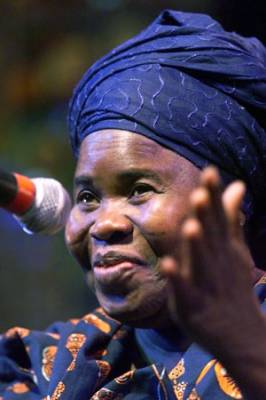
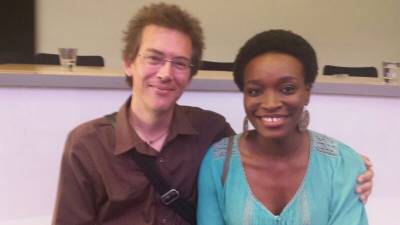
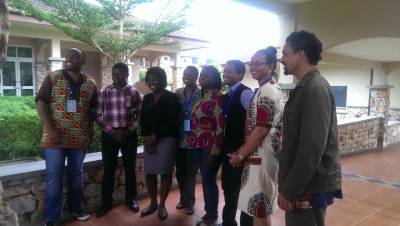
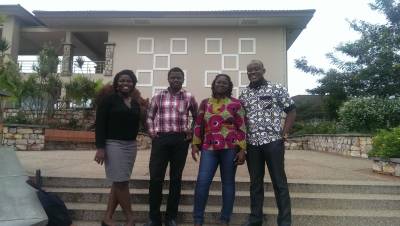
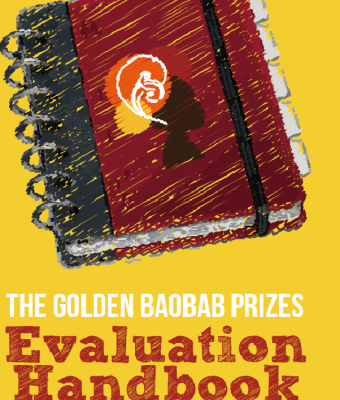 Golden Baobab has begun evaluating stories for the 2014 Literature Prizes. This year, the Prizes received a total of 210 stories from 12 different countries across the continent. The reading season of the evaluation process is in its third week.
Golden Baobab has begun evaluating stories for the 2014 Literature Prizes. This year, the Prizes received a total of 210 stories from 12 different countries across the continent. The reading season of the evaluation process is in its third week.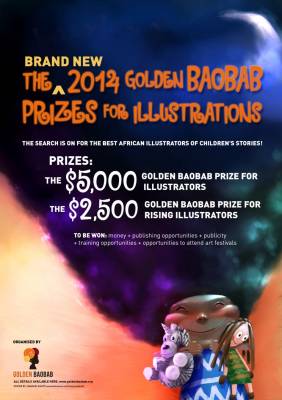 Great news for illustrators, artists and designers in Africa!! Golden Baobab has extended the deadline for submissions to the 2014 Golden Baobab Prize for Illustrators. The new submission deadline is Midnight GMT, Friday, August 22, 2014.
Great news for illustrators, artists and designers in Africa!! Golden Baobab has extended the deadline for submissions to the 2014 Golden Baobab Prize for Illustrators. The new submission deadline is Midnight GMT, Friday, August 22, 2014. 
 Every few weeks, I meet someone who tells me they want to be a writer. Quite often they say they want to write for children or have started writing to give their children something more fun to read. They work in the evenings, after long days behind desks and putting little ones to bed. They tell me they have been workin on it for 6 months or 6 years. All of them want to know how to get published. Many of them imagine it will be much more glamorous and profitable than it’s really likely. Quite a few of them have multiple books they have abandoned, half or a quarter way because they could not find inspiration or had ran out of ideas. I must have met dozens of people with this story in the last 5 years or so. There must be thousands of these hopeful storytellers across Africa but where do all their stories go? Very few of them are ever published by a traditional trade publisher. To be fair, there are very few strictly trade or children’s book publishers on our continent to begin with.
Every few weeks, I meet someone who tells me they want to be a writer. Quite often they say they want to write for children or have started writing to give their children something more fun to read. They work in the evenings, after long days behind desks and putting little ones to bed. They tell me they have been workin on it for 6 months or 6 years. All of them want to know how to get published. Many of them imagine it will be much more glamorous and profitable than it’s really likely. Quite a few of them have multiple books they have abandoned, half or a quarter way because they could not find inspiration or had ran out of ideas. I must have met dozens of people with this story in the last 5 years or so. There must be thousands of these hopeful storytellers across Africa but where do all their stories go? Very few of them are ever published by a traditional trade publisher. To be fair, there are very few strictly trade or children’s book publishers on our continent to begin with.